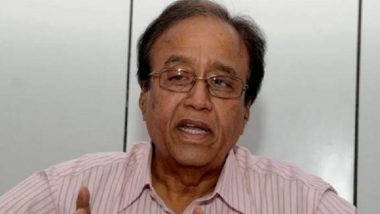Hyderabad, January 2: The Communist Party of India (CPI) appeared to disapprove of two women of menstruating age group entering the Lord Ayyappa temple at Sabarimala "secretly" on Wednesday and said it should have been done "openly". "Generally, we want women's entry (into the Sabarimala shrine), but we don't want something secretly to be done. It is to be done openly, everybody should accept, that's our view," CPI general secretary Suravaram Sudhakar Reddy said.
"It's good that according to the Supreme Court judgement, some women could enter it (the shrine)," he told PTI. The CPI is the second-biggest constituent of the CPI(M)-led LDF government in Kerala. Reddy accused the Congress and the Bharatiya Janata Party of trying to politicise the issue. "They (the two parties) want to gain sentiments of some of the pilgrims and try to create some kind of anti-LDF attitude as if it's (the) LDF which has taken the decision (to allow women of all age groups into the shrine)," Reddy said. Sabarimala Temple: Two Women of Menstruating Age Enter Sanctum Sanctorum of Hill Shrine - Watch Video.
Thiruvananthapuram: Clash between BJP workers and the police during a protest over the entry of two women in Sabarimala temple. #Kerala pic.twitter.com/uaO250ZEl9
— ANI (@ANI) January 2, 2019
"It's actually Supreme Court which has taken the decision and the LDF government is trying to implement it, that's all!" he added. Cloaked in black veils and shrouded in early morning darkness, two women of menstruating age group made history when they stepped into the Sabarimala temple of Lord Ayyappa, breaking a centuries-old tradition defying dire threats from the Hindu right. Bindu and Kanakadurga Create History at Sabarimala Temple, Becomes First Women of Menstruating Age to Enter Ayyappa Shrine in Kerala.
Kanakadurga (44) and Bindu (42) stepped into the hallowed precincts guarded by police three months after the Supreme Court's historic judgement lifting the ban on entry of girls and women between 10 and 50 years of age into the shrine of Lord Ayyappa, its "eternally celibate" deity.













 Quickly
Quickly


